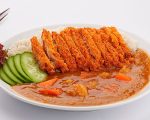What You Should be Eating in Ramadan

Most of us strive to eat a healthy Iftar during Ramadan, but instead give way to sweets, friend foods and overall unhealthy dishes. But Nutritionist Farah Hussein Khanjar at Under 500, a healthy restaurant group in Dubai, details what we should be eating and why.
Suhour
Suhour, an Islamic term referring to the meal consumed before fasting, is the body’s source of energy and is meant to keep an individual going throughout the day without eating or drinking. The ideal types of food we should be including in our Suhour are:
- Complex carbs, which are rich in fiber and take longer to break down and are slowly absorbed by the body. These are commonly found in whole plant foods which keep you full for a longer period during the fasting hours such as whole grain bread and cereals, oatmeal, butternut squash, all- bran cereal, starchy vegetables like potatoes and sweet potatoes, and green vegetables.
- For Suhour, it is recommended to have protein that can be digested within 1 to 2 hours, and avoid meat and poultry, which needs up to 4 hours to be digested and can cause discomfort. These options would include eggs, unsalted cheese, a cup of milk, or beans
- Unsaturated fats, which are good type of fats that reduce cholesterol when taken in moderation. These are present in foods such as avocados, macadamia nuts, and walnuts, whether raw or unsalted.
Iftar
To break Iftar, it is advised to begin with a few dates and water to help replenish energy levels while decreasing the feeling of hunger. This will help reduce the rush into excessive eating, and the water helps in decreasing any signs of dehydration for the following fasting day.
This can be followed by soup to replenish fluid lost throughout the fasting hours. It can also aid in reducing constipation and will more importantly fill you up, which can help with portion control.
Soup can be followed by a green salad rich in fiber, which can help lower cholesterol levels and helps prevent constipation.
As for the main meal, be sure it is nutrient dense, avoid all canned and processed food as this will increase your thirst during your next fasting day. It is best to eat slowly when breaking your fast and you could also take a small break after, should you feel too full.
Healthy Options
Nothing is easier than making your own healthy sweets, you just have to make sure that you are using the right nutritious ingredients. Avoid simple carbs such as white flour, replacing it with almond or coconut flour instead. Use dates or honey as a sweetener instead of refined or processed sugar, and coconut oil instead of butter.
(Credit: Under 500 has 3 locations in Business Bay, Dubai Marina and JLT. Their toll free number is 800 UNDER500 (86337500)








The list shows one of the best coffee makers with hot water dispenser I’ve used so far. I surely recommend checking all the seven devices there. https://coffeelikeapro.com/gear/best-coffee-maker-with-hot-water-dispenser
I can call myself a responsible student coz usually I try to cope with my assignments independently. But the past year was too hard from different sides, so I decided to find help on the essayshark platform. It was really one of the wisest decisions I made that year.
Thank you so much follow the coupos code